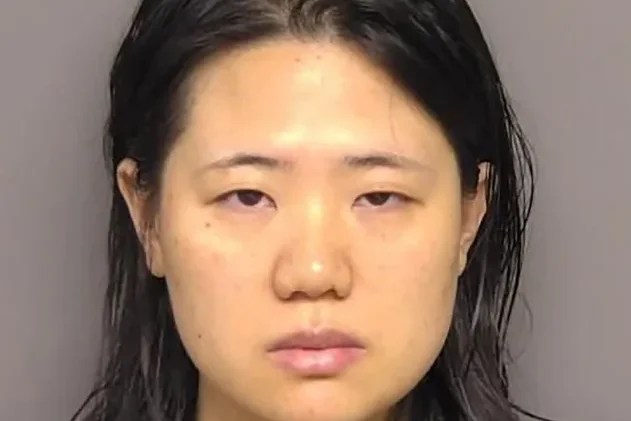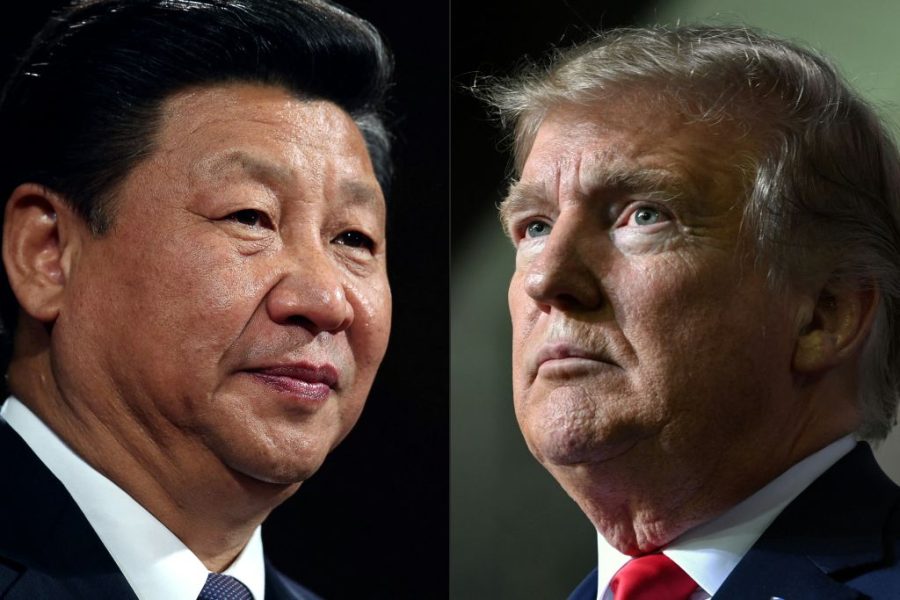Did a senior Chinese politician rape one of the country’s leading tennis stars? That certainly seemed to be the allegation from Peng Shuai, the former women’s world doubles champion. In a social media post in November, she wrote about her three-year affair with former vice-premier Zhang Gaoli: “You took me into your bedroom, wanting to have sex with me. That afternoon I cried and originally didn’t agree.”
Now Ms Peng seems to have retracted her statement, telling a Singaporean newspaper that she had “never said or written that anyone has sexually assaulted me.” But skepticism remains; perhaps because of the Chinese state’s response to her November essay. Within half an hour, her Weibo post was expunged from the net, while Ms Peng’s prominent social media account is still suspended. The tennis star then fell off the radar. That triggered demands to prove her safety not only from the Women’s Tennis Association but also from the American government and the United Nations.
A few weeks later, strange videos emerged of Ms Peng appearing in public — sharing a meal with her friends and coach, signing tennis balls at a tournament. They felt oddly stage-managed: Peng remains silent in the videos, which were released via approved state channels. Her comments to the Singaporean paper this weekend was the first time she has spoken in public. She looked genuinely caught by the reporter.
(PART 2) She also talks about that email posted by CGTN which was popularly derided as being forged, and also whether she has any future travel plans. #whereispengshaui #FreePengShuai pic.twitter.com/dVb7N2hBPA
— delusional raducanu stan (@RaducanuIN) December 20, 2021
So what’s going on? It’s true that the phrases “sexual assault” or “rape” never appeared in Peng’s statement. But it’s hard to read her words as saying anything else. It’s worth looking at her initial statement in detail:
“After we played tennis in the morning, you and your wife Kang Jie took me to your home. Then you took me into your bedroom, like that time more than a decade ago at Tianjin, wanting to have sex with me. That afternoon I was very scared, I never thought it would be like this, that one person would be standing guard outside because nobody would believe that a wife would willingly do that. Seven years previously we did have sex, and then you were promoted to the Politburo Standing Committee in Beijing and never contacted me again. Originally all this was buried in my heart because clearly you were never going to take responsibility, so why did you come back to find me and take me to your home to force me to have sex with you? I don’t have any evidence and it’s impossible to have any evidence anyway… That afternoon I cried and originally didn’t agree. I had dinner with you and Auntie Kang Jie [his wife], you said the universe is very big, that Earth is just a grain of sand in the universe, and we humans are not even a grain of sand. You said a lot of things to try to assuage my concerns. After dinner, I still said I didn’t want to and you said you hated me. You said that in these seven years, you never forgot about me and you’ll be good to me… With fear, with panic and with the feelings I had for you seven years ago, I agreed… Yes, we had sex. Feelings are complicated and hard to put into words. From that day on, I opened my heart to you once again.”
Tears before sex doesn’t strike me as a precursor to legitimate consent, and neither does an afternoon-long campaign of wearing a person down. But it’s easy to see how Ms Peng genuinely may not label what happened to her as rape — after all, she did relent, and the statement is dotted with self-reproaching sentences like “I admit I’m not a good girl.” But even if she did think it was non-consensual and is now reneging on that, it may not have taken much persuasion for her to drop the claims.
In the last two months, Peng will have been put through Hell. Her personal suffering aside, she was most likely under house arrest with all means of independent communication taken off her (no phones, no computers — she may not even know about the international attention). Her coach and friends have clearly been co-opted by the state. There will likely have been threats — explicit or implied — to her career, and possibly even her freedom. In the face of the Goliath that is the Chinese state, what else can Peng do but disown her claims?
Some of the more hysterical reporting quickly lumped her in with the other “disappeared” people in China — the citizen journalists, the human rights lawyers. Victims say they are tortured and interrogated, before being forced to make a confession. But Peng Shuai is not like them. She is not, and never seems to have intended to be, a dissident. Her criticisms were leveled at a Chinese politician, not at Chinese politics itself.
Peng, then, is like the vast majority of China’s population who just want to keep their heads down. “How can they stand it,” ask western pundits, looking to the mass internment camps in Xinjiang or the crushing of Hong Kong, “who would want to live under such an authoritarian regime?” But in truth, most just want to get on with their lives — lives that are infinitely better than those of their grandparents or even their parents. That requires accepting the status quo. In return, the Chinese state provides improving public services, international prowess and economic growth that will make their lives materially better. It’s a social contract of sorts, where the relationship is not, at every turn, dependent on the barrel of a gun. Why commit your life to opposing a seemingly indestructible state? As Peng wrote, it’s like “using an egg to hit a stone.”
Two years ago, I caught up with a radical student I’d previously interviewed — she had been secretly watching banned documentaries about Tiananmen Square. After graduation, she joined a state media outlet, Xinhua News Agency. When I asked her what happened, she laughed awkwardly and said “Well, you have to make a living.” Peng seems to have been forced to make a similar calculation.
This article was originally published on The Spectator’s UK website.

























